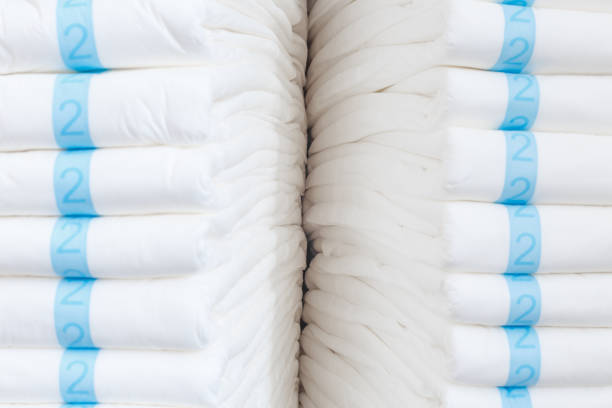Incontinence is often an overlooked but significant issue among adults living with disabilities.
As society becomes more aware of the challenges faced by those with physical, cognitive, and age-related disabilities, the need for better incontinence care has emerged as a critical part of improving their quality of life.
The availability of high-quality incontinence products is not just about physical comfort but also about dignity, mental well-being, and the ability to lead a fulfilling life.
The Prevalence of Incontinence in Adults with Disabilities
Incontinence, or the inability to control bladder or bowel movements, affects millions of adults globally. While aging is one of the leading causes, various disabilities—both physical and neurological—can make managing incontinence particularly difficult.
Conditions such as spinal cord injuries, multiple sclerosis, cerebral palsy, and stroke can significantly impair the ability to control bladder or bowel function.
Cognitive disabilities, such as Alzheimer’s disease and other forms of dementia, also contribute to incontinence. People living with these conditions may lose awareness of the need to use the bathroom, making them reliant on caretakers or incontinence products to manage their day-to-day activities.
Challenges of Living with Incontinence
For adults with disabilities, incontinence adds another layer of complexity to their lives. It can lead to a loss of independence, making simple activities like going out or traveling more difficult.
The emotional toll of incontinence can be heavy, often leading to embarrassment, anxiety, and a sense of helplessness.
Beyond the emotional and social implications, incontinence can cause physical discomfort if not managed properly. Skin irritation, urinary tract infections, and hygiene issues are common for people who don’t have access to proper care and products.
Caretakers, whether professionals or family members, often face additional challenges when managing incontinence, as it requires vigilance and careful planning to ensure the individual’s comfort.
The Importance of High-Quality Incontinence Products
Fortunately, advancements in healthcare products have made it easier for adults with disabilities to manage incontinence more effectively. Modern incontinence products are designed with comfort, discretion, and convenience in mind. These products include:
– Absorbent Pads and Liners: These are designed to be worn inside regular underwear, providing a discreet option for light to moderate incontinence.
– Adult Diapers and Pull-Ups: Ideal for more severe cases, these offer maximum absorbency and are easy to put on and take off.
– Incontinence Bed Pads: These protect bedding and furniture, ensuring cleanliness and reducing the burden on caregivers.
– Skin Care Products: Special creams and wipes can help reduce the risk of rashes and irritation that incontinence can cause.
– Catheters and Other Medical Devices: For those needing medical intervention, catheters can relieve more severe bladder control issues.
Why Incontinence Products Are Essential for Adults with Disabilities
1. Maintaining Dignity: One of the most significant impacts of incontinence is the loss of dignity and independence. Proper incontinence care products help individuals regain control over their daily lives, offering them a sense of normalcy. Discreet, comfortable products reduce the anxiety of potential accidents and empower people to participate in social activities without fear.
2. Improved Quality of Life: Managing incontinence effectively allows adults with disabilities to experience a better quality of life. This not only reduces the physical discomfort of accidents but also helps alleviate the emotional burden. Adults can maintain their hygiene, feel more comfortable in public spaces, and preserve their self-esteem.
3. Support for Caregivers: Incontinence products make caregiving significantly easier. For those who are caring for loved ones with disabilities, access to high-quality products can reduce the time and effort spent on managing incontinence. With better absorbency and fit, these products minimize leakage and reduce the frequency of changes, allowing caregivers to focus on other aspects of care.
4. Preventing Health Complications: Inadequate management of incontinence can lead to skin breakdown, infections, and pressure sores, especially in individuals with limited mobility. High-quality incontinence products not only prevent leaks but also wick away moisture, keeping the skin dry and reducing the risk of further health issues.
Moving Towards Greater Accessibility and Innovation
The incontinence care industry is rapidly evolving, with manufacturers continually improving product design, comfort, and effectiveness.
This is especially important for the disability community, where the need for individualized care is essential. Products are becoming more adaptive and tailored to specific needs, whether it’s size, absorbency level, or skin sensitivity.
Additionally, there is a growing focus on sustainability in the incontinence product market. As more people become aware of environmental concerns, companies are producing more eco-friendly options, such as biodegradable materials and reusable products, to minimize waste.
In Conclusion
Incontinence is a challenge that millions of adults with disabilities face, yet it remains a topic that is not often discussed openly.
Access to high-quality incontinence products is essential for maintaining the dignity, independence, and health of adults living with disabilities.
As the healthcare community and manufacturers continue to innovate, the future holds promise for even better solutions, ensuring that individuals with disabilities can lead fuller, more comfortable lives.

No responses yet